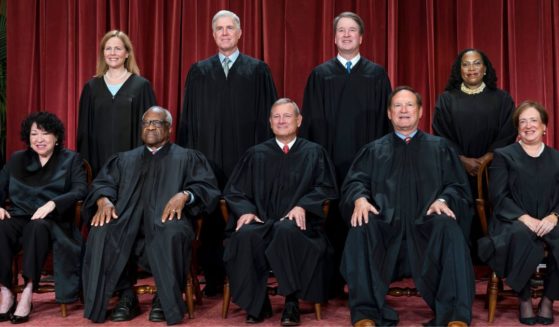3,000-Year-Old Tablet May Confirm Biblical Account of Ancient King
A recent study of a stone tablet dating back to 840 B.C. suggests that King Balak from the Biblical Book of Numbers may truly have been a historical figure.
According to research published by the Journal of the Institute of Archaeology of Tel Aviv University, more accurate readings of the Mesha Stele — also known as the Moabite Tablet or Moabite Stone — indicate that a name found on the 31st line is that of King Balak of Moab.
“It is now clear that there are three consonants in the name of the monarch mentioned there, and that the first is a beth. We cautiously propose that the name on Line 31 be read as Balak, the king of Moab referred to in the Balaam story in Numbers 22–24,” wrote Israel Finkelstein, Nadav Na’aman and Thomas Römer in their abstract.
According to Live Science, the tablet has long been subject to speculation, a result of having to be reconstructed after Bedouin tribesmen shattered it in the 1860s during sales negotiations with Western buyers.
Previous readings done by researchers such as Andre Lemaire proposed reading “House of David” into Line 31 due to the presence of a “B” prior to a break in the tablet.
Lemaire suggested the “B” may indicate the word “beth” — Hebrew for house.
However, upon reviewing photographs and a “squeeze” made of the tablet, which resides at the Louvre Museum in Paris, the team believes this reading to be inaccurate.
They contend that Lemaire made numerous false assumptions, including the inclusion of a character that is not present.
“We dismiss Lemaire’s proposal to read (‘House of David’) on Line 31,” they wrote. “We are dealing with a three-consonant word which is most probably a personal name: it starts with a beth, followed by a space for two missing letters that is followed by the vertical stroke, and then begins a new sentence.
“What personal name with three consonants, starting with the letter beth, could the stele have been referring to? A variety of names might fit here… but one name stands as the most likely candidate, i.e., Balak,” the researchers conclude.
Still, other researchers stress that these findings are mainly speculative.
Ronald Hendel, a University of California, Berkeley professor of Hebrew Bible and Jewish Studies, told Live Science: “It’s just a guess. It could be Bilbo or Barack, for all we know. Moreover, the Bible places King Balak about 200 years before this tablet was created, so the timing doesn’t make sense.”
It seems, however, that Finkelstein, Na’aman and Römer have accounted for such things, suggesting that the scribe who created the tablet was likely including figures and other “elements borrowed from the ancient reality” to flesh out the plot.
“The study shows how a story in the Bible may include layers (memories) from different periods which were woven together by later authors into a story aimed to advance their ideology and theology,” Finkelstein concluded.
“It also shows that the question of historicity in the Bible cannot be answered in a simplistic ‘yes’ or ‘no’ answer.”
Truth and Accuracy
We are committed to truth and accuracy in all of our journalism. Read our editorial standards.












